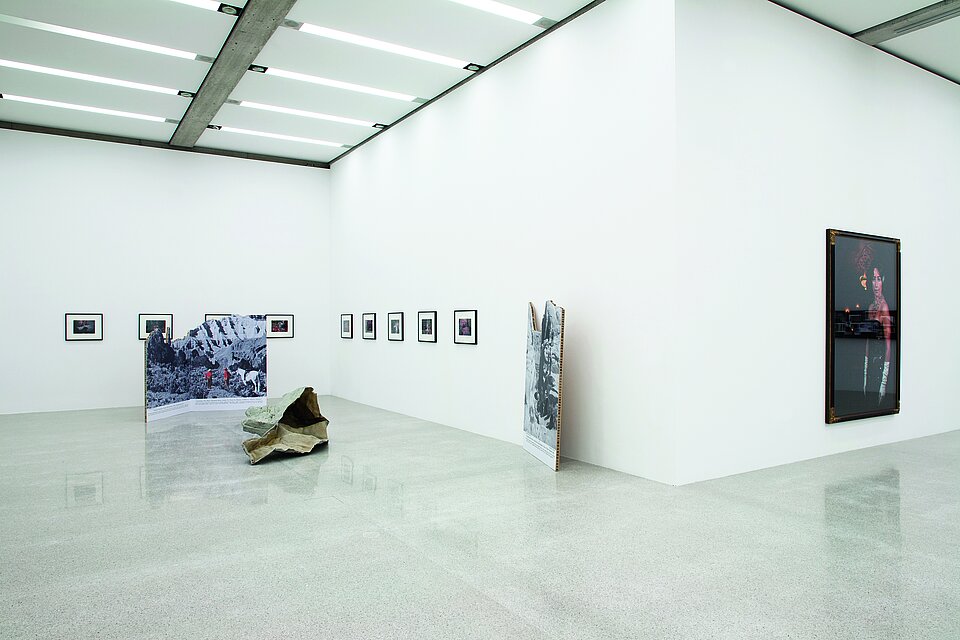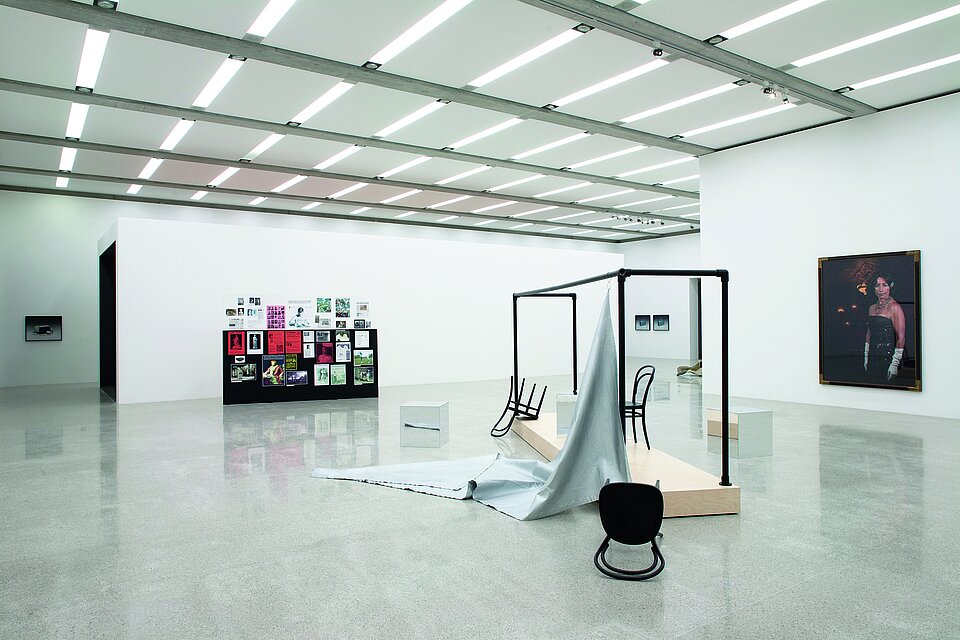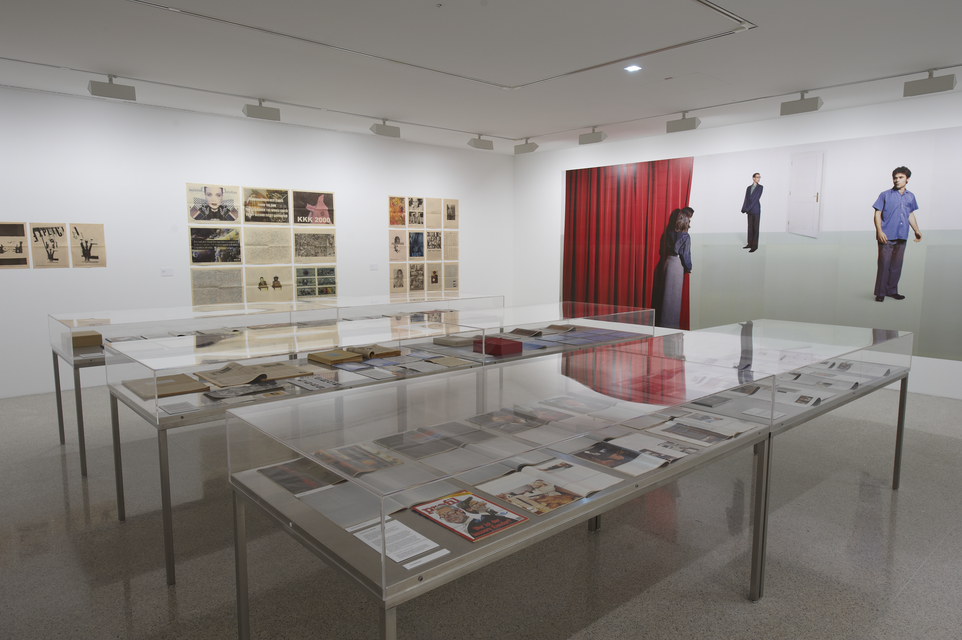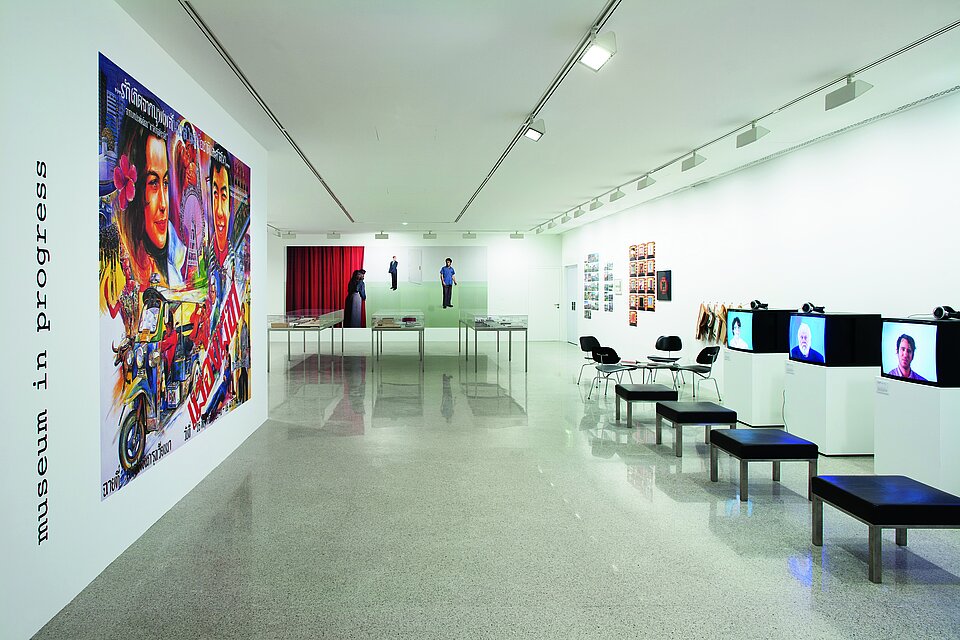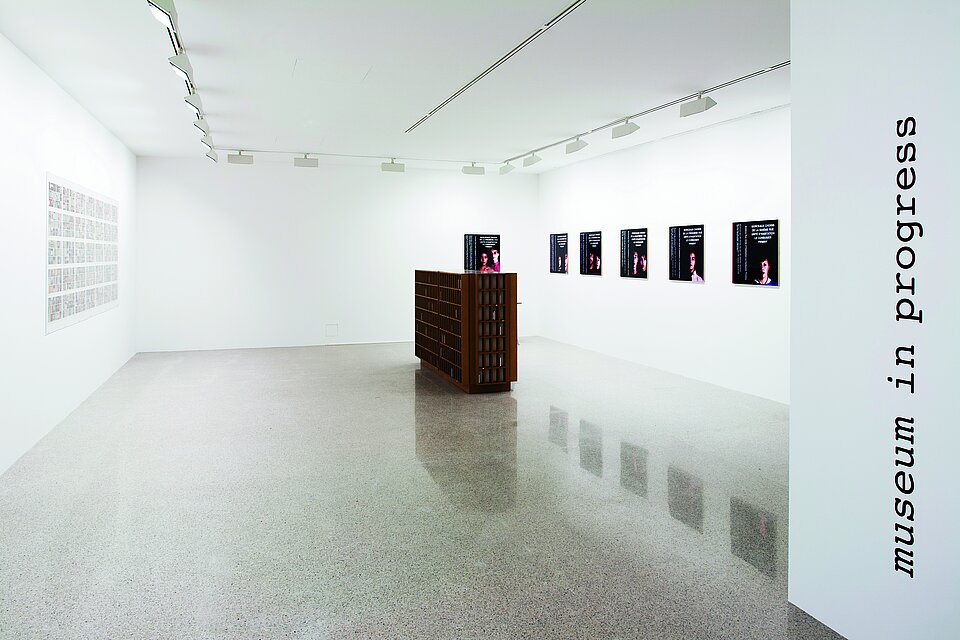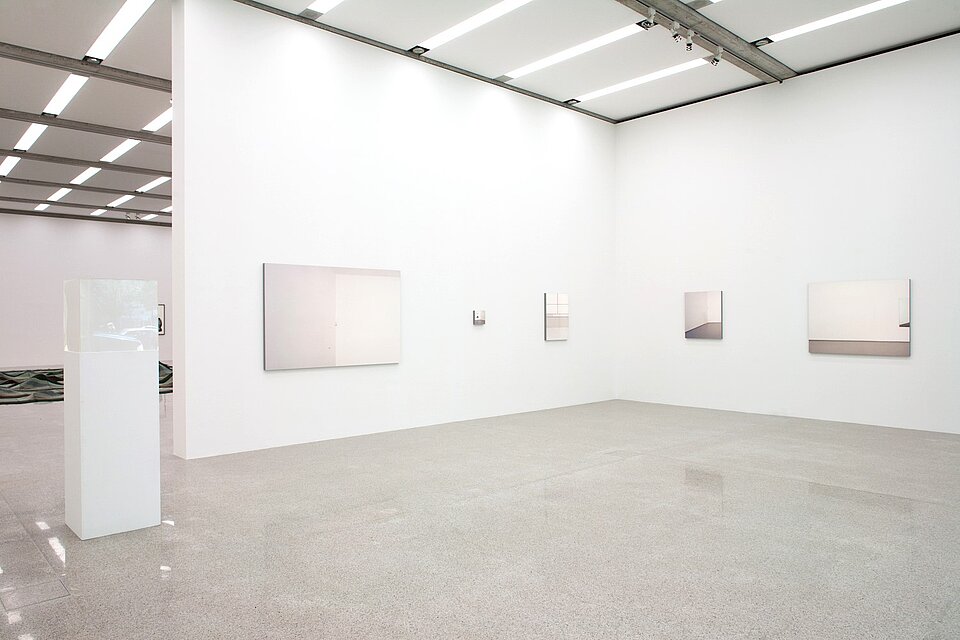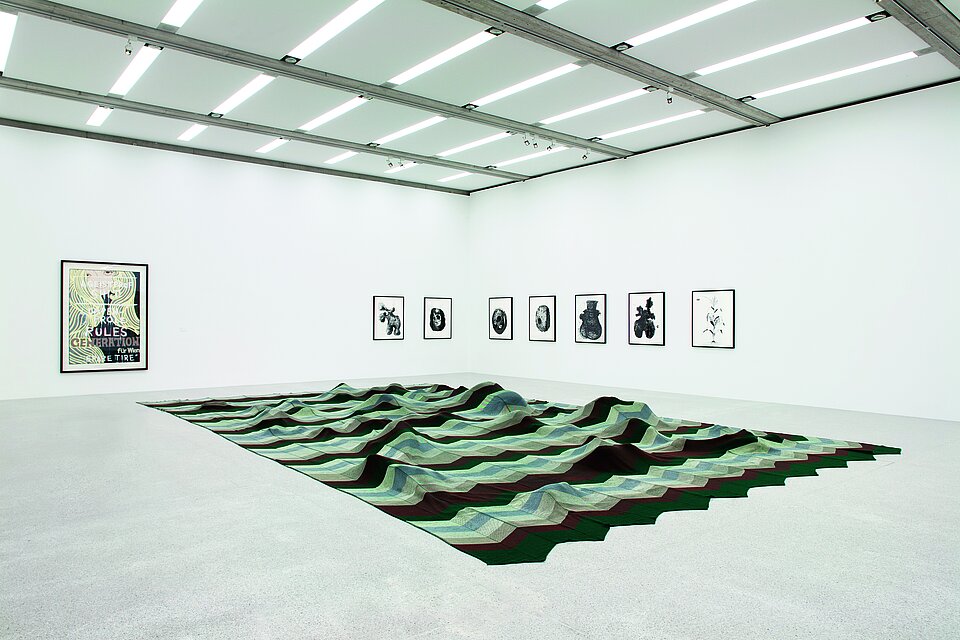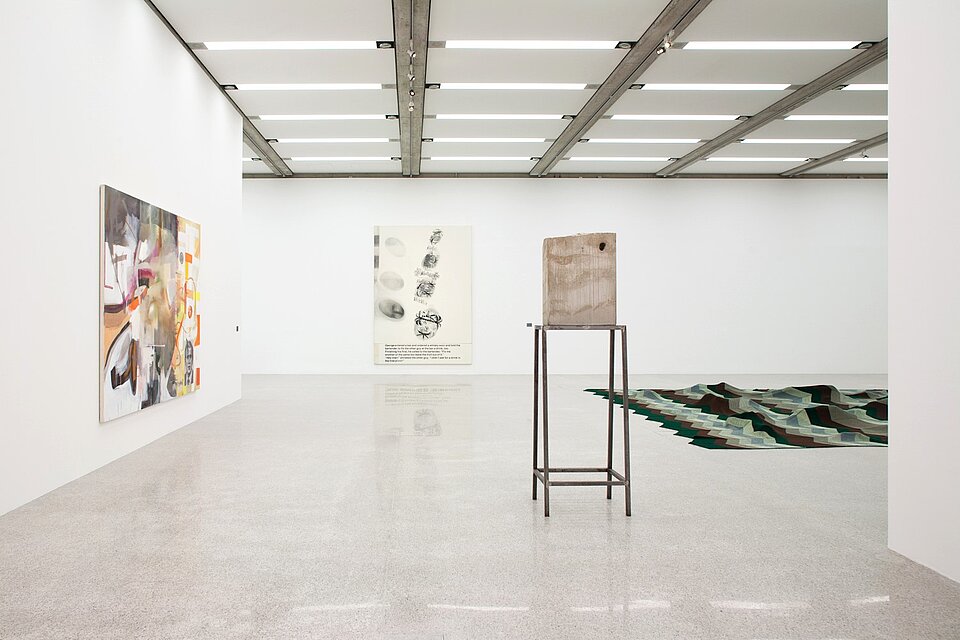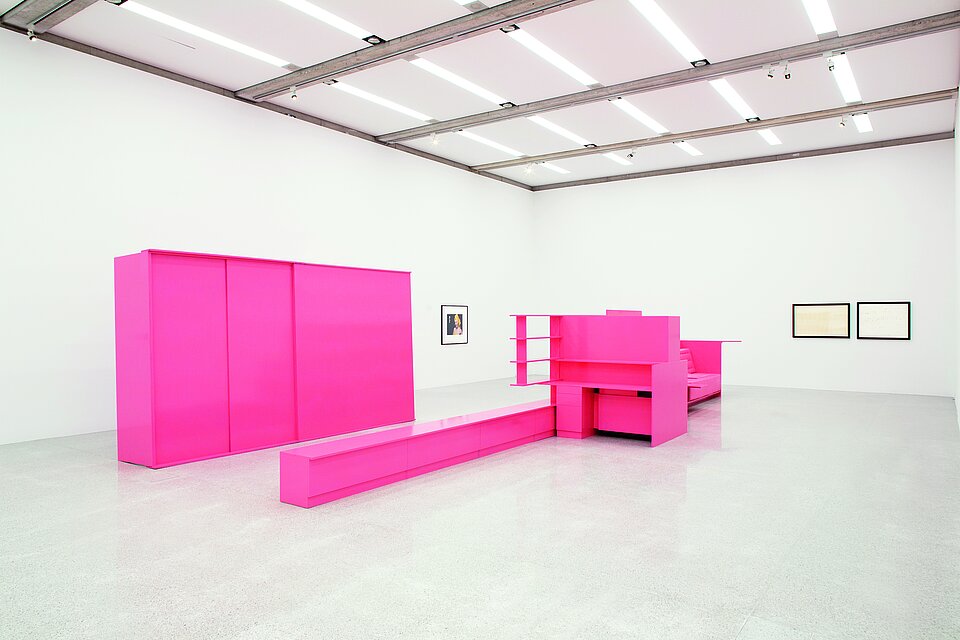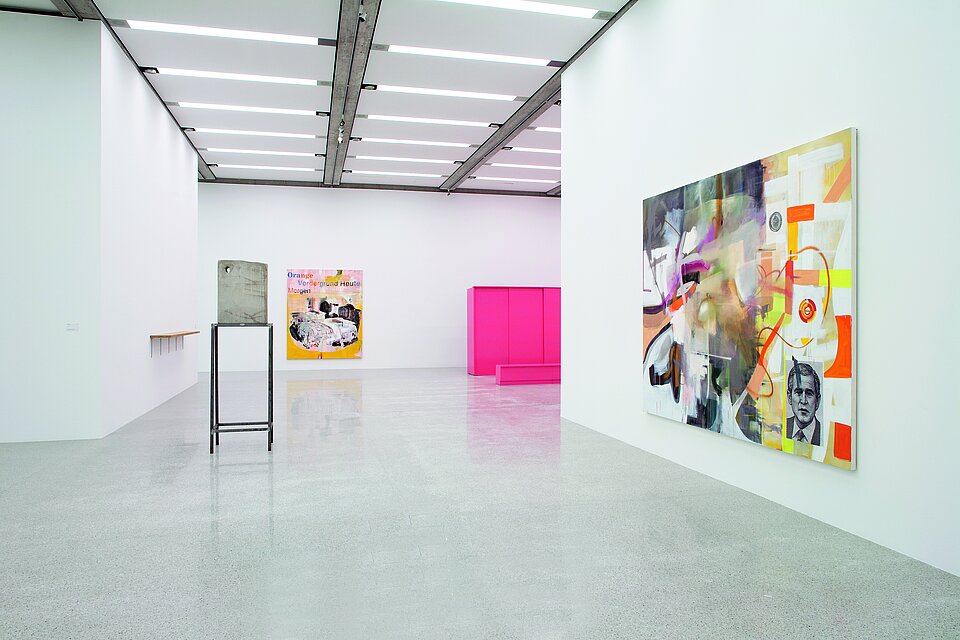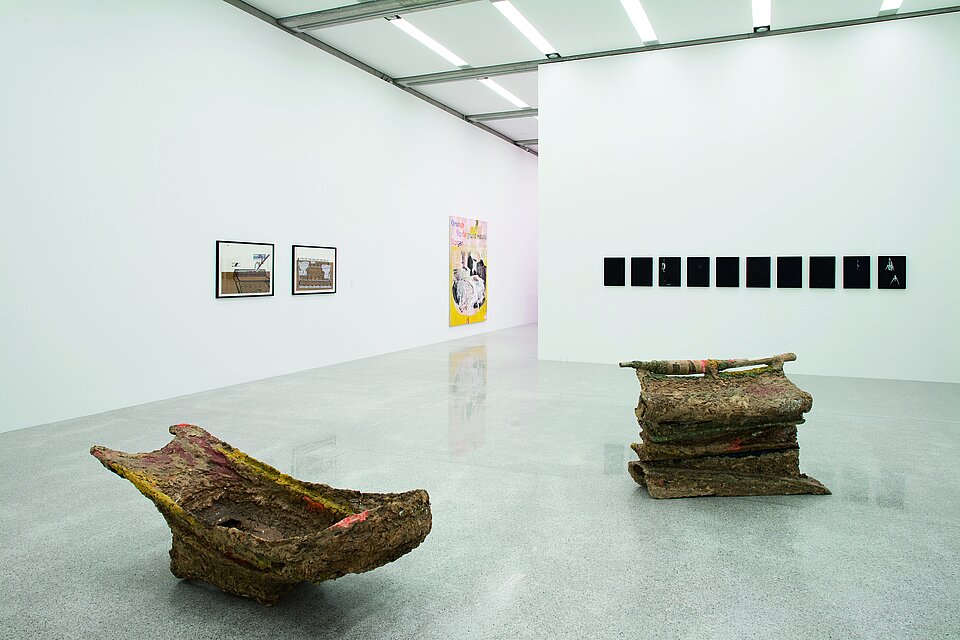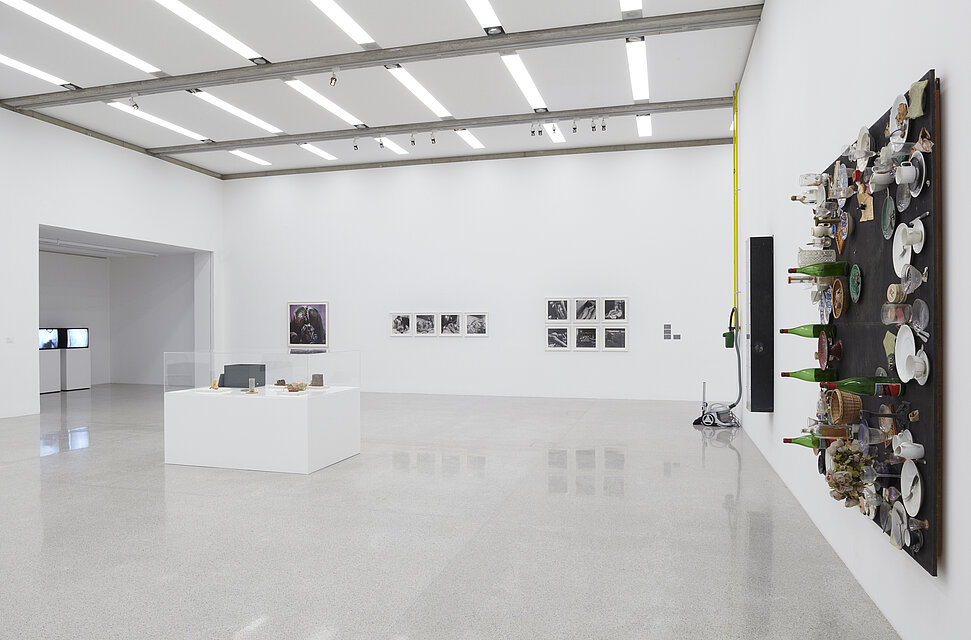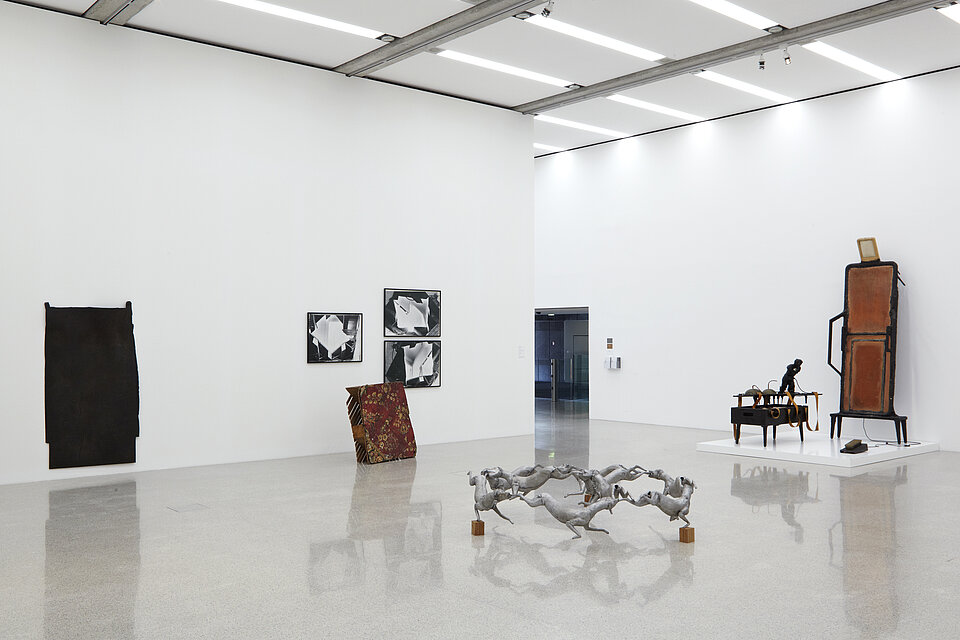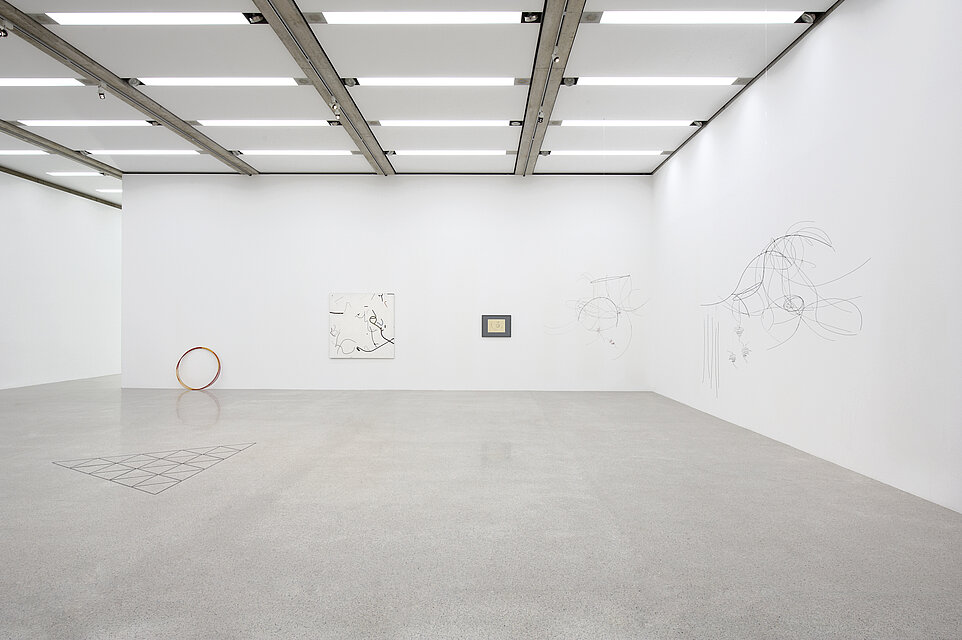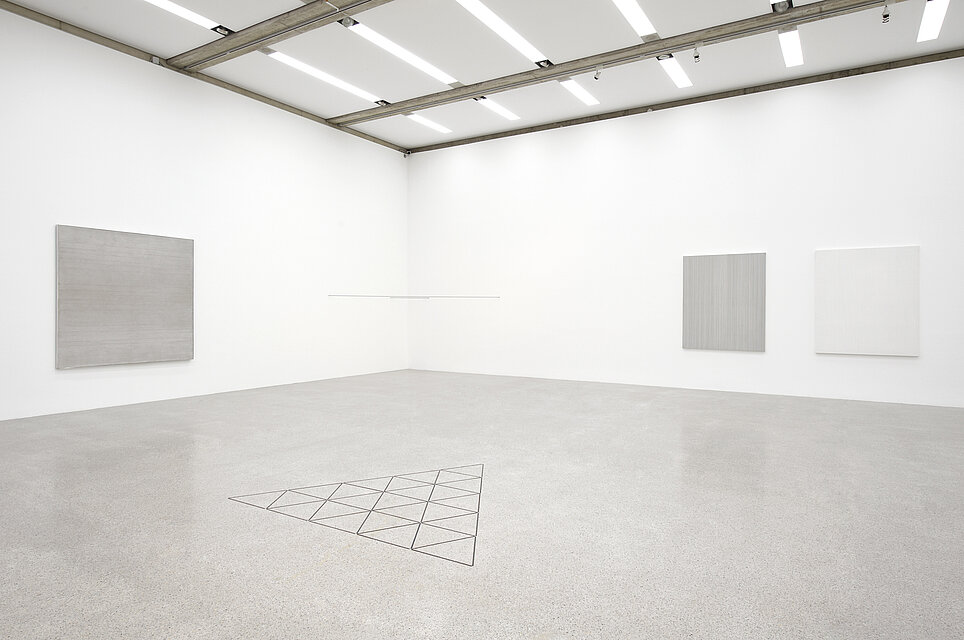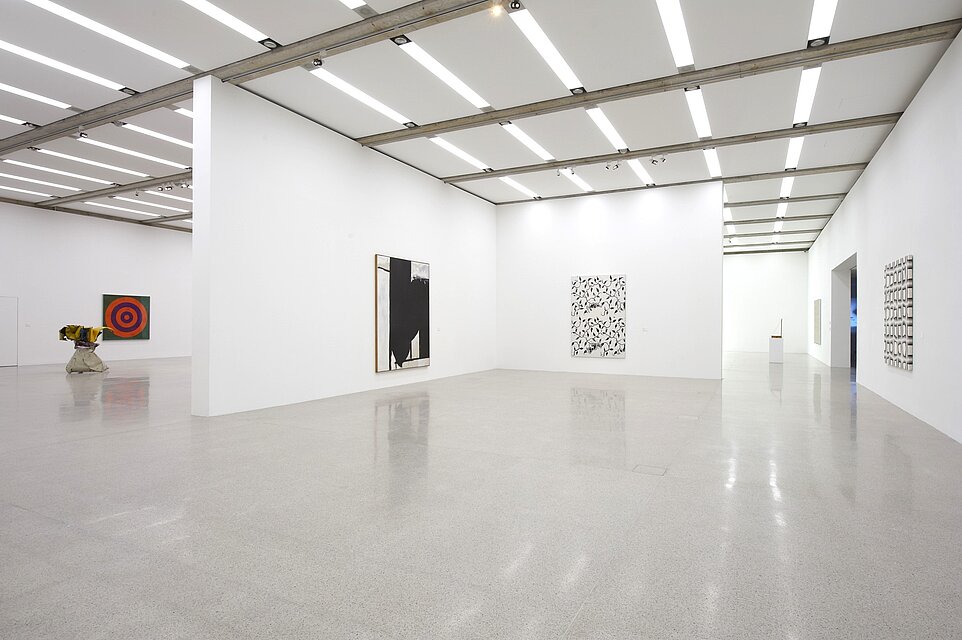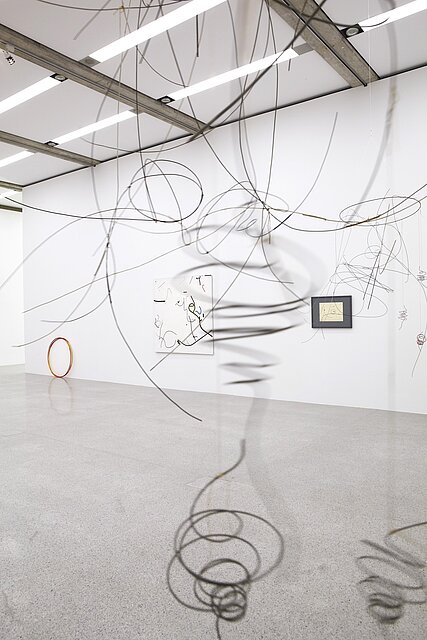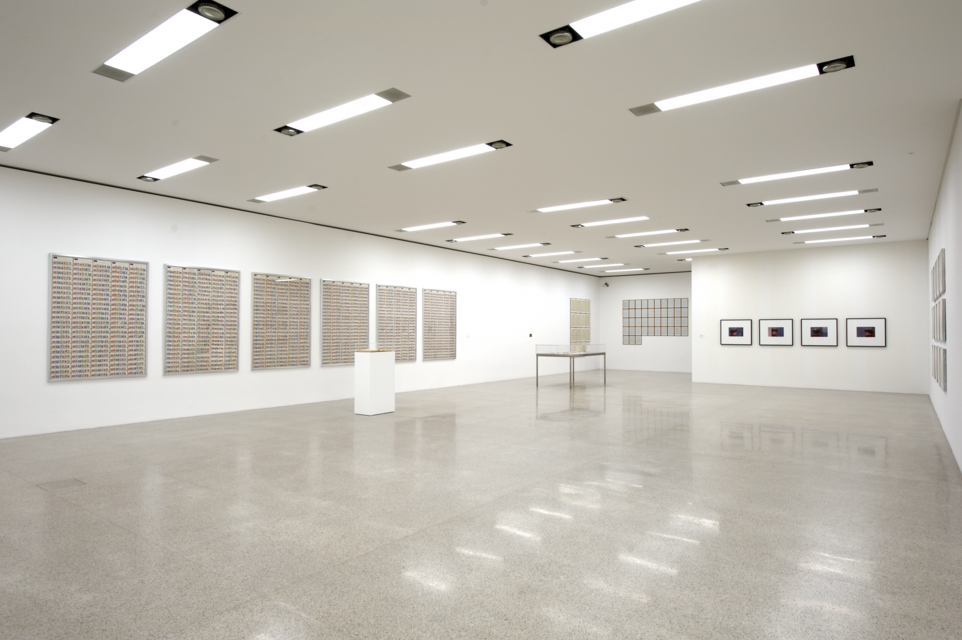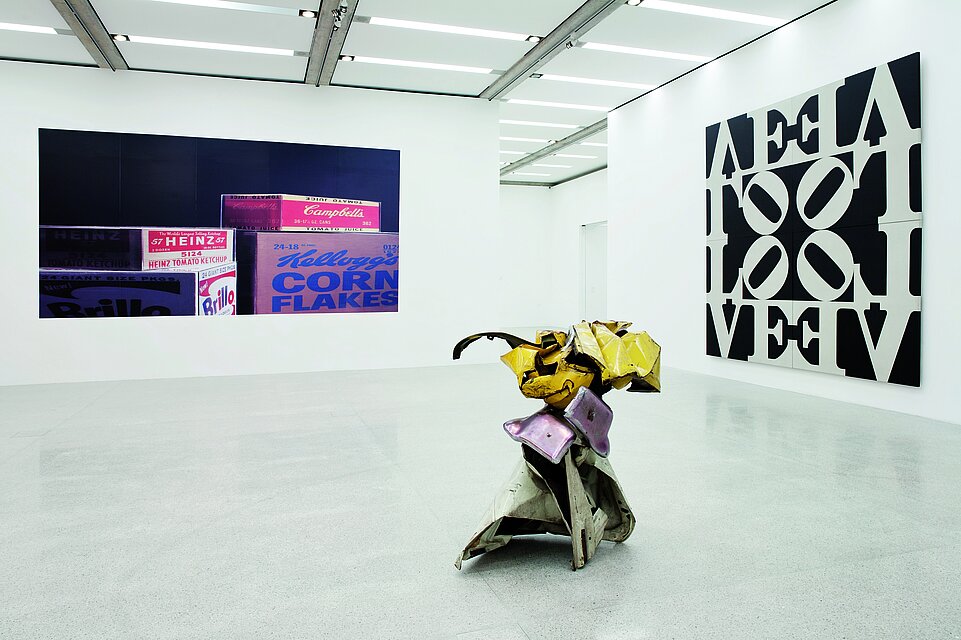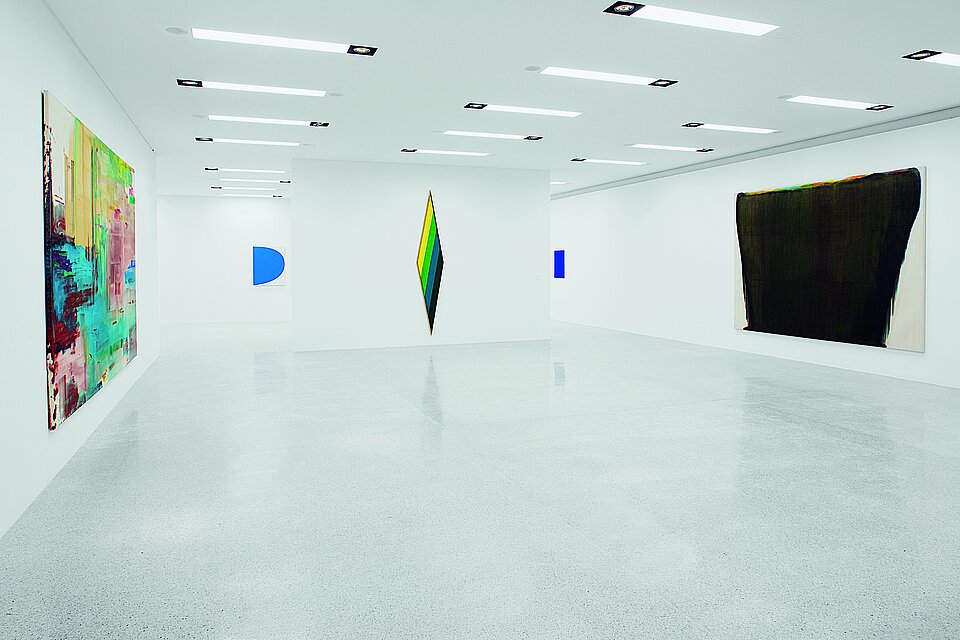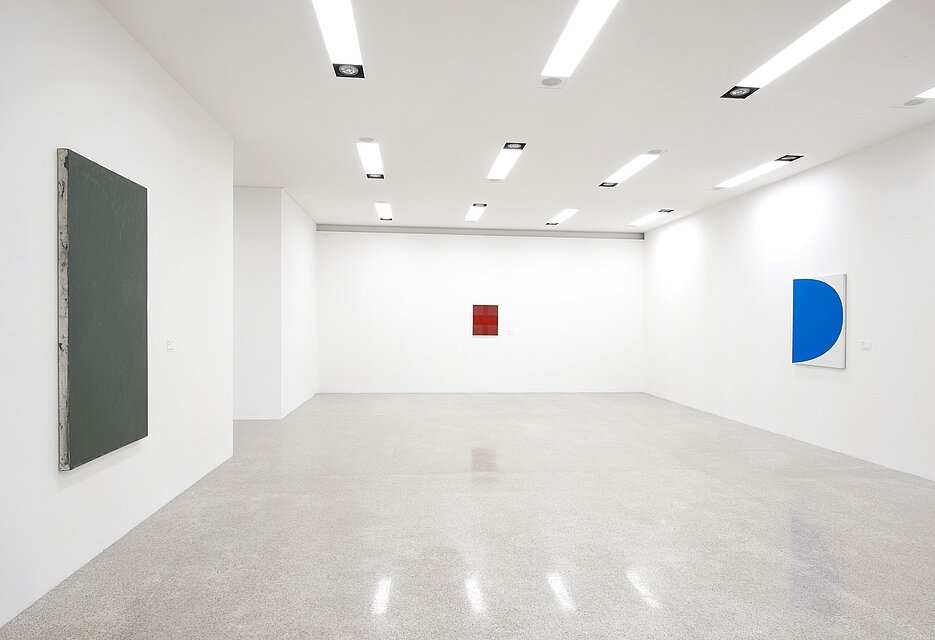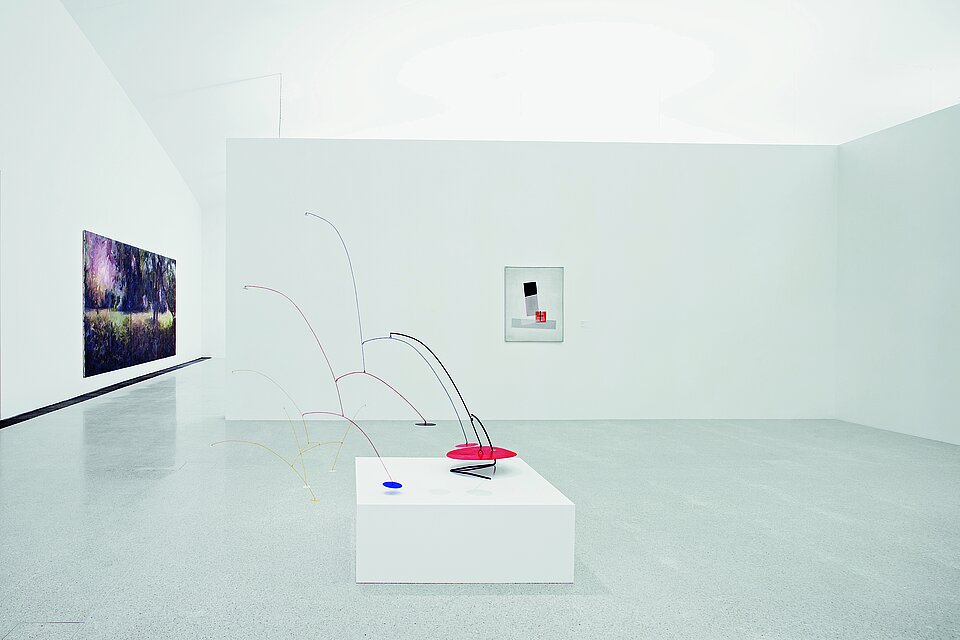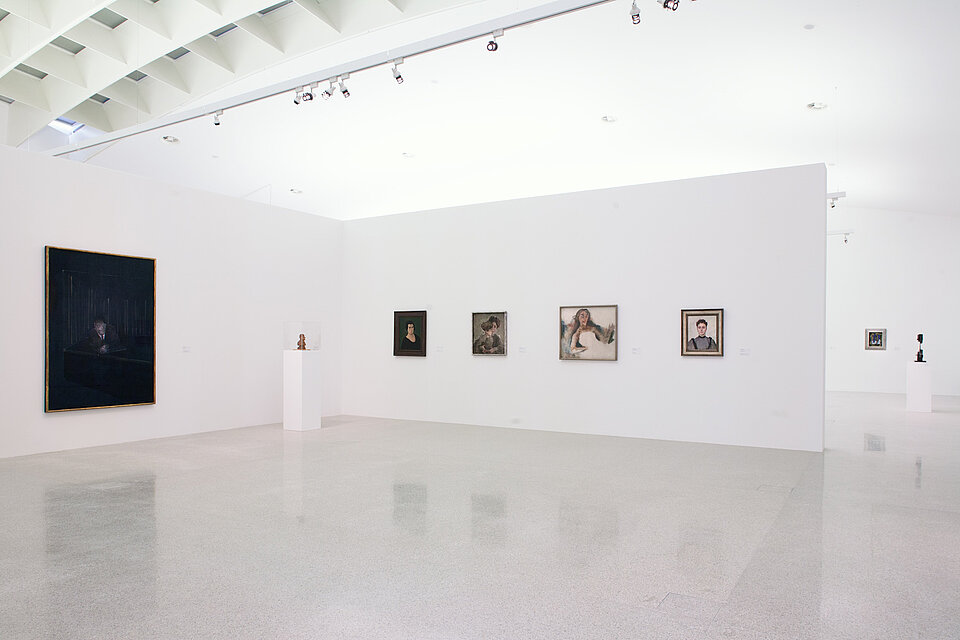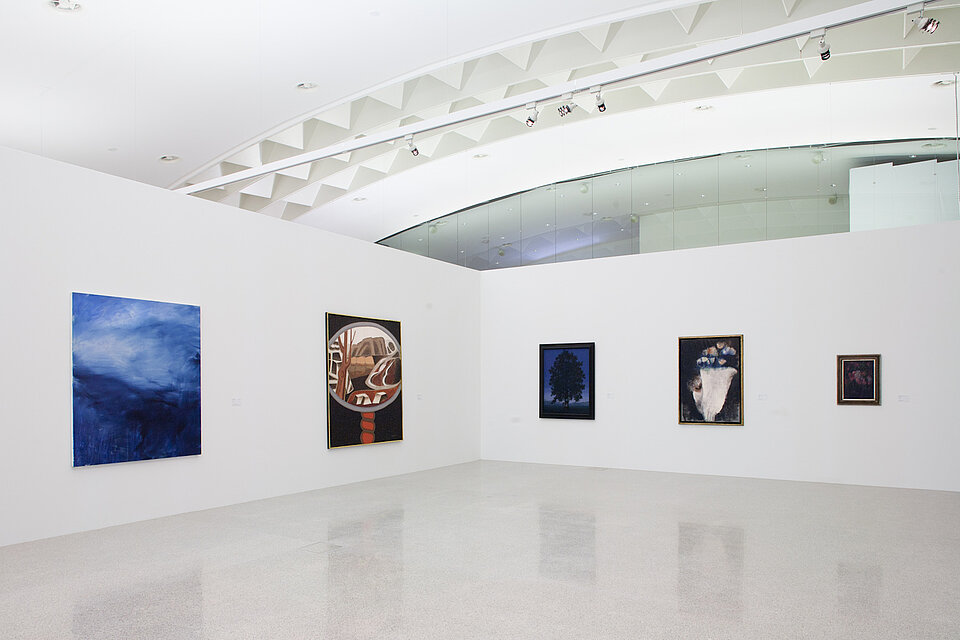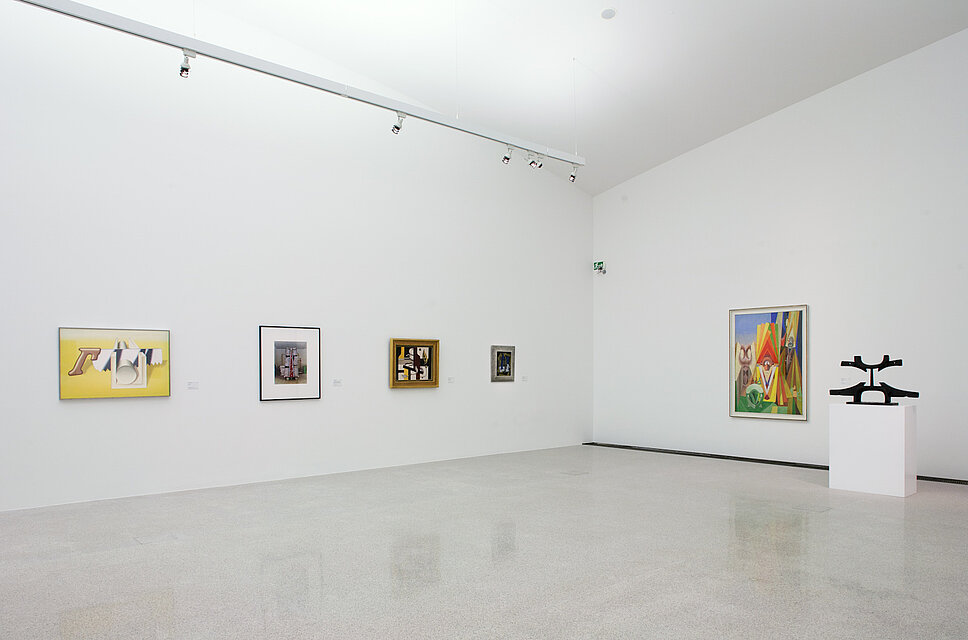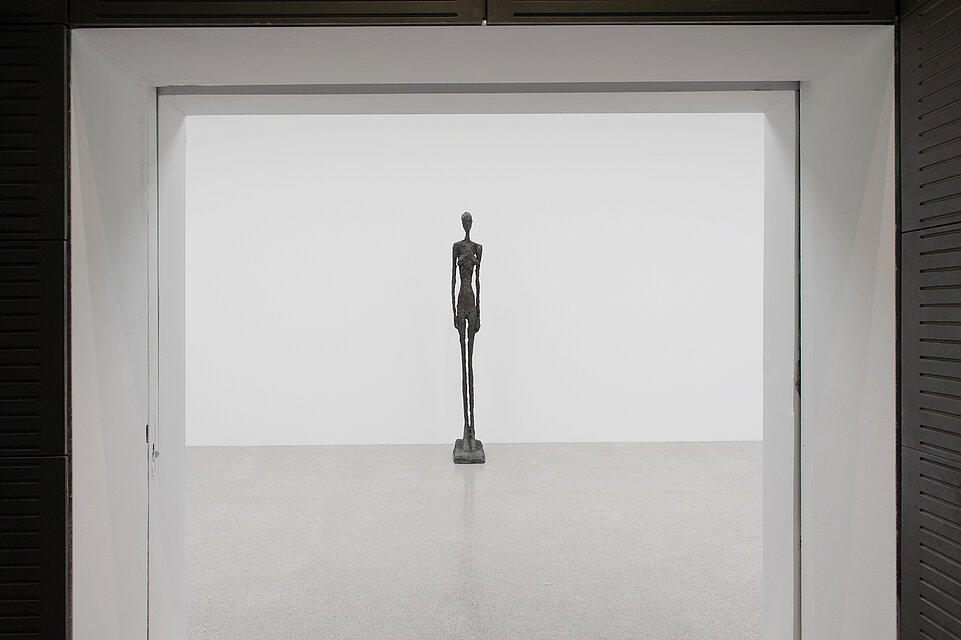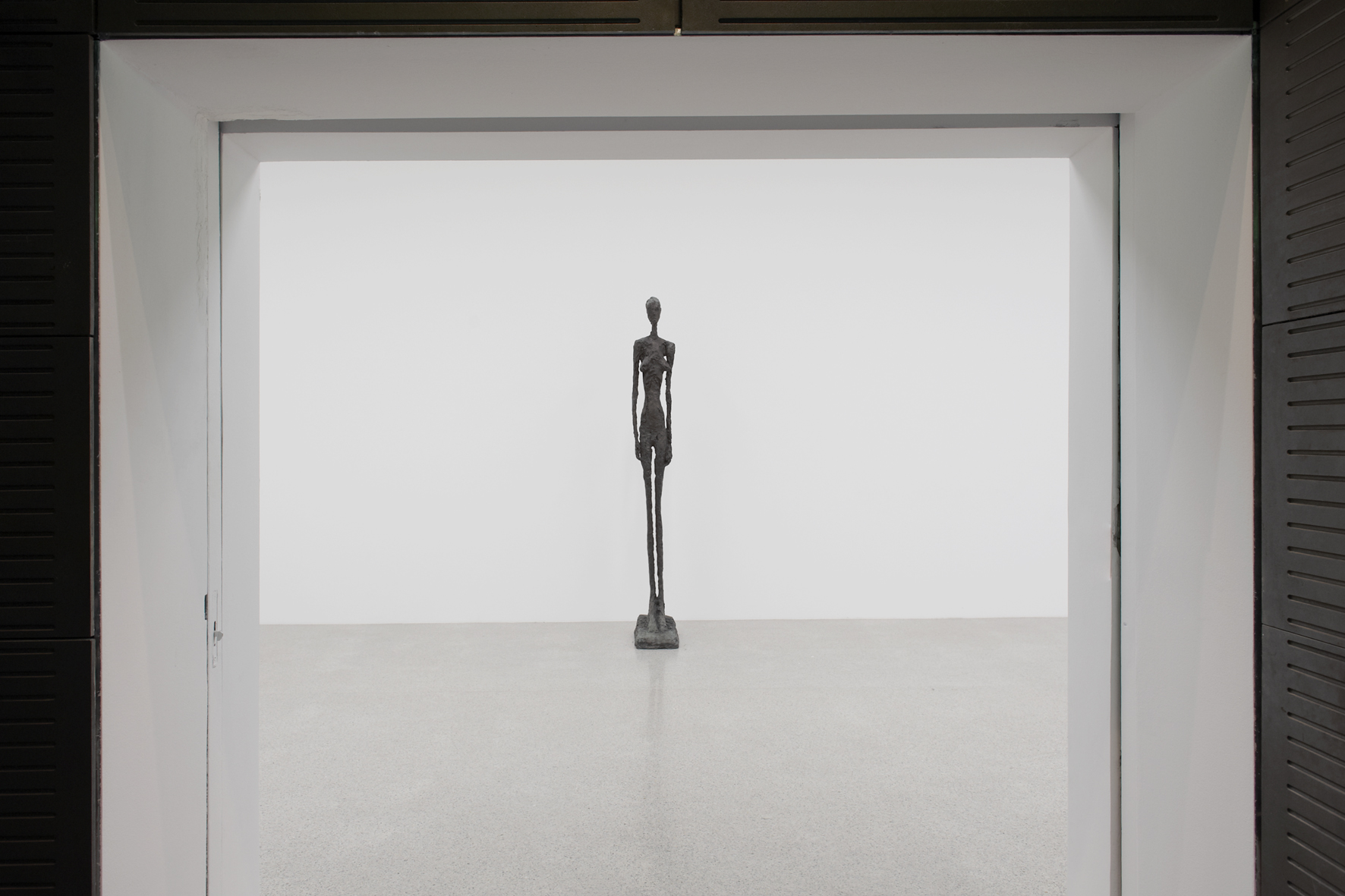
Exhibition |
September 10, 2011 to January 8, 2012
Museum of Desires
Museum of Desires
Curated by Karola Kraus
In the Museum of Desires the new director Karola Kraus is combining the innovative presentation of the mumok collection with a dynamic strategic campaign aimed at the acquisition of new works. Integrated into the permanent exhibition were works that the museum would like to own in order to supplement and enhance the key areas in its collection and to highlight new, future-oriented features. The wish for the new acquisitions was directed towards a target group of private patrons and sponsors so as to win their support for the museum at a time of shrinking budgets and enable it to continue fulfilling its core task of collecting in a responsible manner.
The exhibition placed the collection’s potential in a new light and provided for transformed and broadened perspectives on art since modernism. It disrupted conventional patterns of thought by juxtaposing works from different temporal and topographical contexts with each other. Thus not only the significance of classical highlights from the holdings could be appreciated in a more nuanced way than usual (Kandinsky, Klee, Giacometti, Mondrian, Kupka, Magritte, Picasso etc.), but the collection itself gained additional conceptual dimensions in the dialogue with the desired works.
Contemporary attitudes to the art of the sixties and seventies were refined and simultaneously corrected within the movements of geometric abstraction and also Minimal and Post-minimal art and the history of its influence. Works by Dan Flavin, Palermo, Fred Sandback, Henryk Stazewski and Monika Sosnowska dissolved hitherto existing boundaries dividing “West” and “East” by casting a global perspective onto these art trends. Connections that transcended the borders between the various art scenes were spotlighted also in the genres of conceptual, performative and actionist art, with works by Robert Barry, Geta Bratescu, Anestis Logothetis, Otto Muehl and more. This provided a more comprehensive and authentic picture of the traditions upon which the younger generation of artists have based their work since the 1980s, whether in installations, performance, media or socialoriented arts.
In the sphere of film, video and photography works by Phil Collins, Tacita Dean, Sharon Lockhart and Stephen Prina underlined the mumok campaign to promote media-supported art. The successful exhibition policy and the museum’s commitment to painting were reflected inter alia in the form of representative works by Cy Twombly and Albert Oehlen.
The works we proposed betoken a museum of the most recent past and of the present age, with holdings that were sufficiently dimensioned in breadth and depth to serve as the basis for the future collecting policy. At the same time, the Museum of Desires testified to Karola Kraus’s concept of letting the large-scale special exhibitions enter into a continual dialogue with the permanent collection. Accordingly, the museum presented itself to the public as a flexible institution that is open to change and to the world outside.
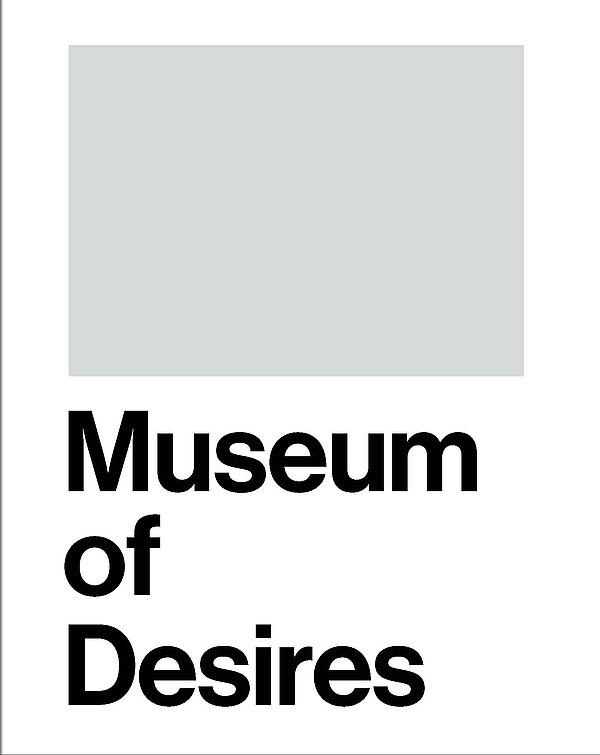
Mainsponsor of the Exhibition

Sponsor

Sponsor
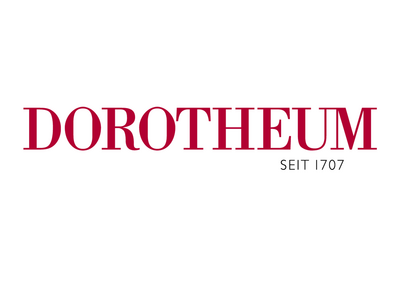
Partner

Partner

Partner

Media Partner
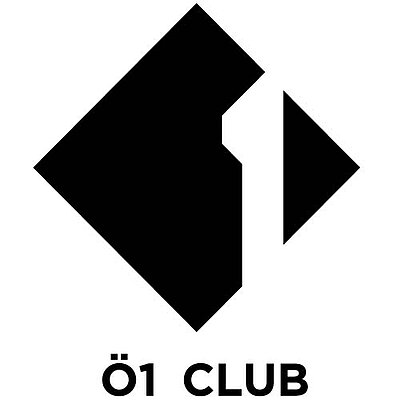
Media Partner

© mumok – museum moderner kunst stiftung ludwig wien
